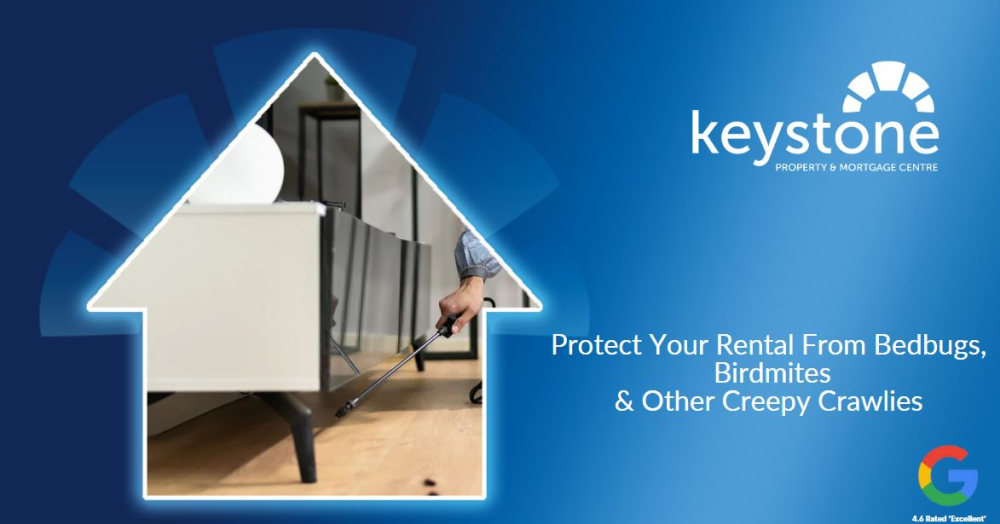There’s no room for complacency when it comes to dealing with insects in a rental property.
What can start as a minor inconvenience can quickly become a major issue, especially as summer is breeding season.
So, here’s a list of common bugs for tenants and landlords to keep an eye out for.
Bedbugs
Holidaymakers often inadvertently bring bedbugs home with them in their luggage (they are a common problem in the hotel industry).
The bloodsuckers look like red or brown seeds but can be hard to spot as they dislike light.
The first signs of bedbugs include blood spots on the bed and sheets or bite marks on the skin.
Flies
Flies are a relatively common sight in summer but are by no means harmless.
They spread bacteria and can cause food poisoning. Flies are also super-producers (female flies start laying eggs just 48 hours into adulthood).
Black or grey in colour, flies feed off rubbish, pet food and animal faeces.
Bird mites
These tiny oval-shaped creatures are like something from a horror film. While they do bite humans, they prefer to feed off birds (and need bird blood to complete their lifecycle).
You’ll find them wherever wild birds make their home. So, if you’ve had an issue with birds nesting in your loft, bird mites could be your next problem.
Bird mites are semi-transparent but turn brown when they’ve consumed blood. They can live for a few weeks without a host in ceiling cracks or bed linen.
Wasps
These pests chew ceilings, walls and timber and turn it into pulp to make their nests.
Wasps, which are black and yellow and can sting, build their nests in sheltered areas, such as under eaves or in sheds and garages.
Preventing insect infestations
In the event of an insect infestation, it’s sometimes best to call in a pest control expert (they’ll have all the right products and know how to do things safely).
However, ideally, landlords and tenants should work together to prevent problems arising in the first place. Both parties have responsibilities.
Tenants should:
- Ensure bins are well secured.
- Keep a tidy home and ensure food isn’t left lying around uncovered.
- Clean up after their pets straight away.
- Vacuum regularly to remove insect eggs.
- Report problems to the landlord or letting agent promptly.
- Inspect second-hand furniture meticulously for bugs before bringing it into the property.
Landlords should:
- Ensure there are no holes, cracks or uncovered drains where insects can make their home.
- Check for nests, eggs and insect droppings during inspections.
- Respond promptly if tenants raise concerns.
By being proactive, tenants and landlords can keep creepy crawlies at bay.
Contact us here at Keystone today to learn more about our property management services.


